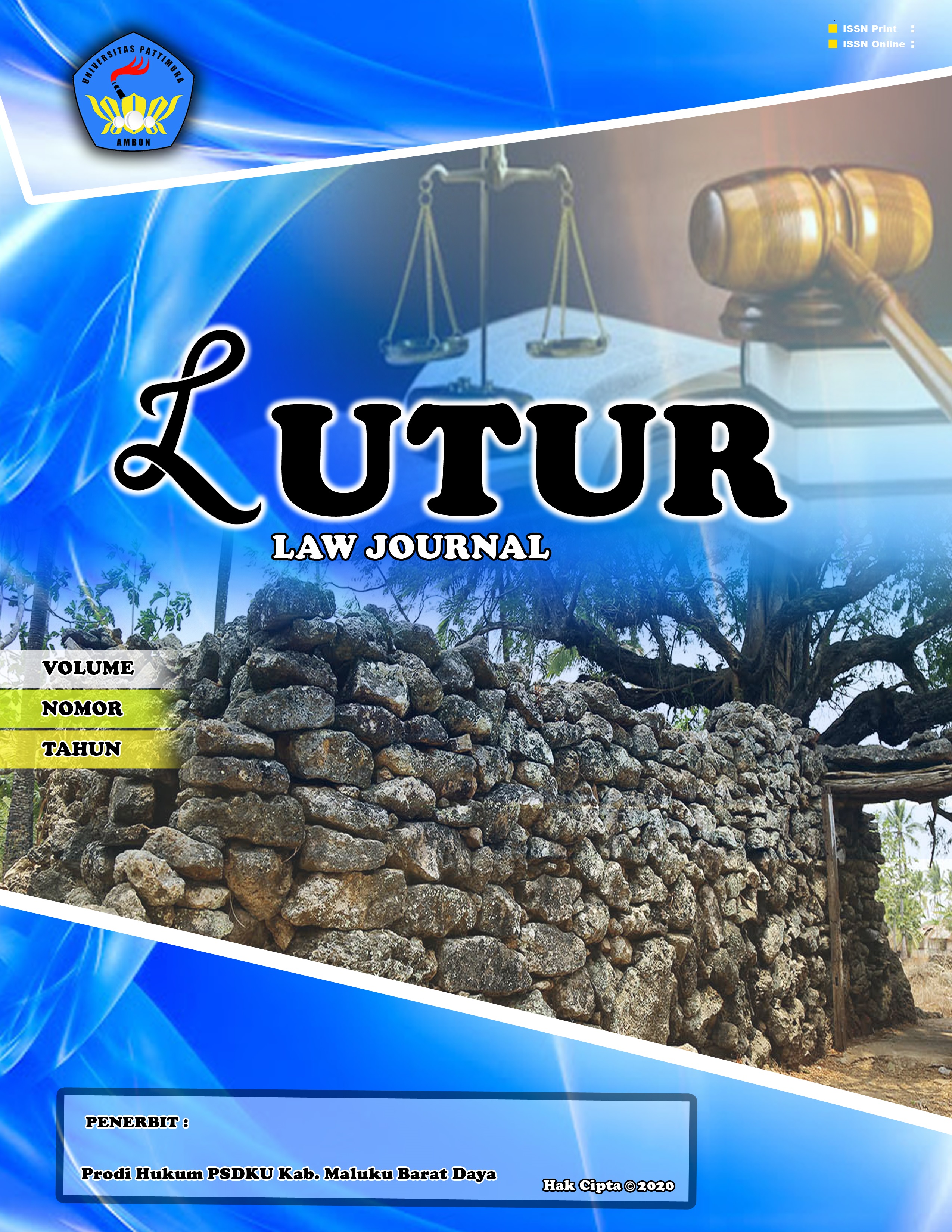Tindakan Faktual Pemerintah dalam Pelaksanaan Putusan Peradilan Tata Usaha Negara
Abstract
This study analyzes government compliance with State Administrative Court decisions and the factual impact of such implementation in the Indonesian legal system. Given that compliance with State Administrative Court decisions is part of the supremacy of law and citizen rights, this study will explore inhibiting factors and strategies to improve compliance. Law Number 5 of 1986 concerning State Administrative Courts and its amendments regulates the government's obligations in implementing State Administrative Court decisions. In addition, Law Number 30 of 2014 concerning State Administration also contains provisions relating to the discipline and authority of state administrative officials in implementing decisions. This study uses a juridical-normative method to examine the laws and regulations governing the implementation of State Administrative Court decisions. Legal certainty is a guarantee that laws are made, interpreted, and applied in accordance with clear and logical rules, so as not to provide room for arbitrariness. An integrated legal and administrative strategy is essential to increase compliance with State Administrative Court decisions. Compliance with decisions of the State Administrative Court is an important element in ensuring the principle of the rule of law. However, in practice, the implementation of State Administrative Court decisions is often hampered by various interrelated factors. These obstacles can be categorized into three main aspects, namely normative, structural, and cultural factors.
Downloads
References
Bagir Manan, Teori dan Politik Hukum Tata Negara, Bandung: Alumni, 2008.
Gustav Radbruch, Legal Philosophy, Oxford: Oxford University Press, 1950.
L.J. Van Apeldoorn, Pengantar Ilmu Hukum, Jakarta: Pradnya Paramita, 2001.
Mahdi Syahbandir, 1998, “Ruang Lingkup dan Peranan Hakim Peradilan Tata Usaha Negara dalam Memeriksa dan Memutus Sengketa Tata Usaha Negara”, Kanun Jurnal Ilmu Hukum, No. 20, Edisi Agustus, FH Unsyiah Darussalam Banda Aceh.
Mahkamah Agung Republik Indonesia, “Laporan Tahunan Mahkamah Agung 2023: Statistik Eksekusi Peradilan Tata Usaha Negara”. Jakarta, 2023.
Marbun, S.F., 2011, Peradilan Administrasi Negara dan Upaya Administrasi di Indonesia. FH UII Press, Yogyakarta.
Ni’matul Huda, Hukum Tata Negara Indonesia, Jakarta: Raja Grafindo Persada, 2011.
Peter Mahmud Marzuki, Penelitian Hukum, Jakarta: Kencana, 2010.
Paulus Effendi Lotulung, "Kepastian Hukum dalam Pelaksanaan Putusan PTUN," Jurnal Hukum dan Kebijakan Publik Vol. 3, No. 1 (2020): 21-25.
Philip M. Hadjon, Perlindungan Hukum bagi Rakyat di Indonesia, Surabaya: Bina Ilmu, 1987.
Roscoe Pound, Jurisprudence, St. Paul: West Publishing Co., 1959.
Soerjono Soekanto dan Sri Mamudji, Penelitian Hukum Normatif: Suatu Tinjauan Singkat, Jakarta: PT RajaGrafindo Persada, 2006.
Sudikno Mertokusumo, Penemuan Hukum: Sebuah Pengantar, Yogyakarta: Liberty, 2001.
Victor S, Soedibyo, 1998, Pokok-Pokok Peradilan Tata Usaha Negara, Jakarta. Rineka Cipta.
Wade, H. W. R. 2006. Hukum Administrasi Negara, Jakarta: Raja Grafindo Persada.
Zudan Arif Fakrulloh, Hukum Administrasi Negara, Jakarta: RajaGrafindo Persada, 2018.
Copyright (c) 2024 Soeleman Djaiz Baranyanan (Author)

This work is licensed under a Creative Commons Attribution-NonCommercial 4.0 International License.
Authors who publish their manuscripts in this Journal agree to the following conditions:
- The copyright in each article belongs to the author, as well as the right to patent.
- Authors are able to enter into separate, additional contractual arrangements for the non-exclusive distribution of the journal's published version of the work (e.g., post it to an institutional repository or publish it in a book), with an acknowledgment of its initial publication in this journal.
- Authors are permitted and encouraged to post their work online (e.g., in institutional repositories or on their website) prior to and during the submission process, as it can lead to productive exchanges, as well as earlier and greater citation of published work.
- Authors have the right to self-archiving of the article (Author Self-Archiving Policy)














